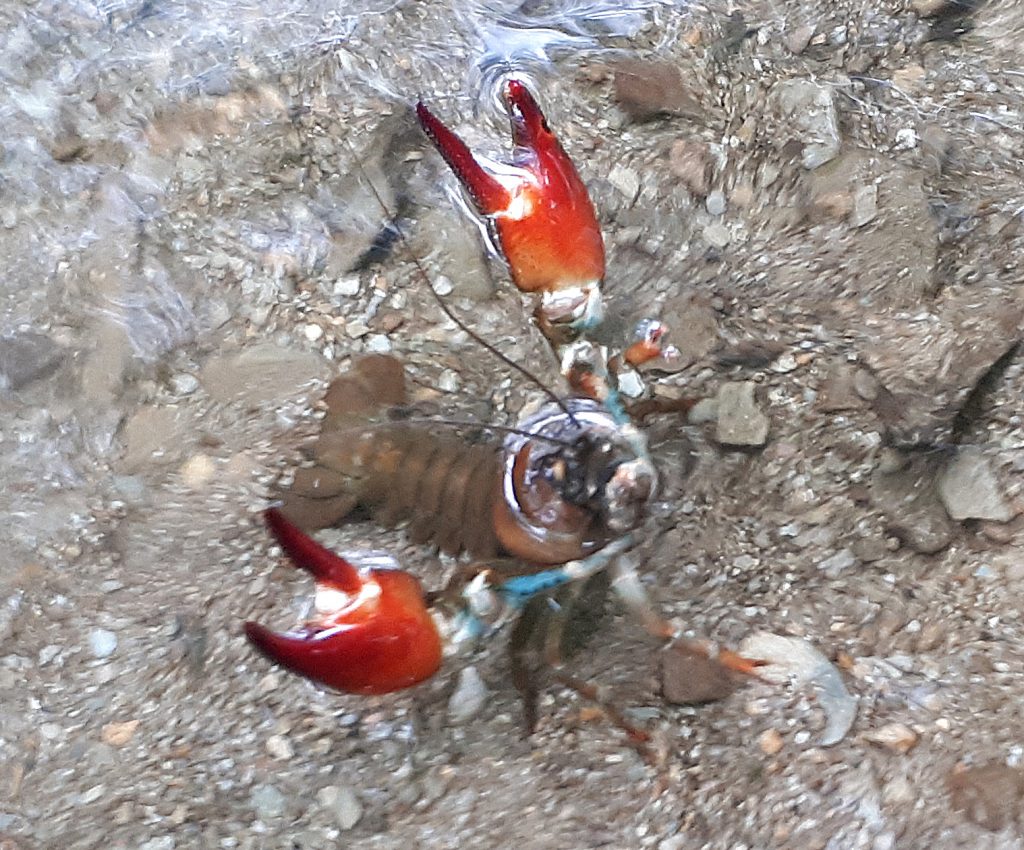I’m Dr Nicky Green, an ecological consultant and researcher specialising in the conservation of native freshwater crayfish and the management of invasive crayfish in the UK. These are the native white-clawed crayfish Austropotamobius pallipes, which have decreased by over 80% in the UK since the 1980’s, and the invasive American signal crayfish Pacifastacus leniusculus, introduced for aquaculture in 1976 and now widespread.

Signal crayfish have many detrimental impacts, including the spread of crayfish plague, a disease fatal to native crayfish, consumption of aquatic fauna and siltation of rivers through their burrowing activities. My advice is based on years of practical experience and rigorous research combined with a thorough understanding of current scientific knowledge. I can provide survey and monitoring, training and advice on crayfish conservation and management.

I started working with crayfish in 2003, initially monitoring native white-clawed and signal crayfish on the river Creedy/Yeo in Devon for the local Environment Agency (EA) Team. After ‘rediscovering’ an extant population on East Devon’s River Culm in 2005, works extended to that river. Involvement with the South West Crayfish Project from 2008 led to working with the EA, Buglife, Bristol Zoo and the Avon Wildlife Trust translocating white-clawed crayfish to ‘ark sites’ in Devon and helping to set up a captive breeding facility and public exhibit at Paignton Zoo.

Since 2014 my focus has been on volunteer led projects including the River Barle Signal Crayfish Project and Exmoor Non-Native Invasive Species (ENNIS) projects on Exmoor, the Culm Community Crayfish Project and the Devon Crayfish Ark Project. I also completed a part time PhD based on research into signal crayfish control carried out on Exmoor. I have published two papers in peer reviewed journals (available from my Projects page) and presented my research at crayfish conferences in Spain, USA, Sweden and Finland as well as numerous events and workshops in the UK.

My main objective is to research, trial and develop simple, cost-effective ways of controlling invasive crayfish to reduce their impacts on aquatic ecosystems, and to make my results widely available so that my research can help others. This frequently involves helping volunteer and stakeholder groups develop strategies suitable for their sites and assisting them with tasks such as training, equipment and data collection/analysis. As well as working with volunteers and stakeholders I regularly collaborate with associates and experienced assistants.

Another focus is the development of and research into the Artificial Refuge Trap (ART) which is more economical and less biased than conventional funnel traps. I manufacture and sell Artifical Refuge Traps (ARTs) to help fund my research and assist stakeholder groups on modest budgets.